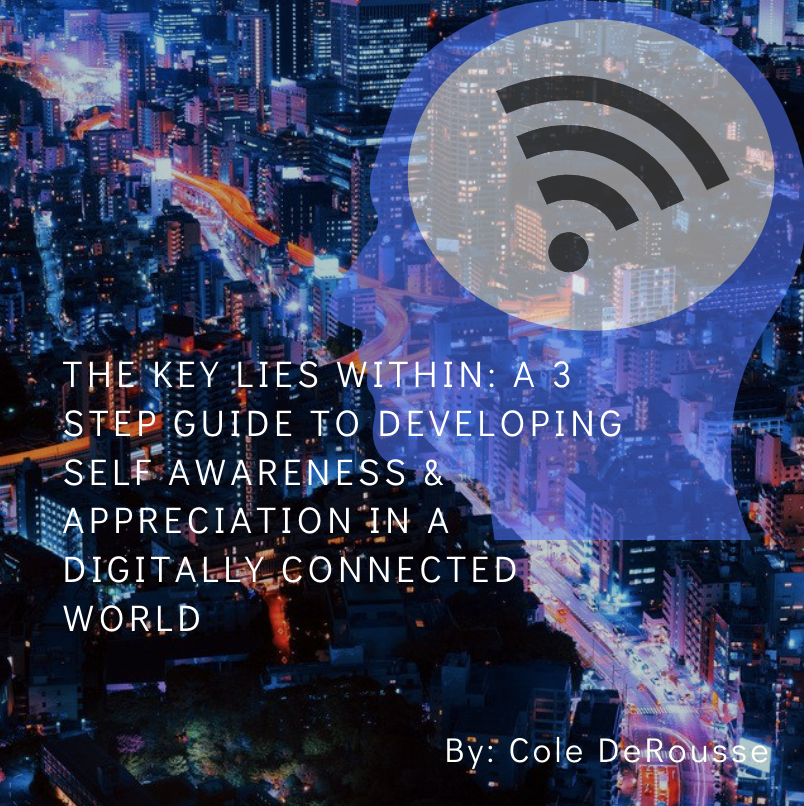
A deep dive into self-awareness in a digitally connected world, why it’s important, how it works and why you should do it.
Has it ever seemed like only bad things happen to you – and only YOU? Well of course it has, we all tend to feel this way from time to time.
This example of cognitive bias is often referred to as the “self-confirmation bias”. Occurring from “direct influence of desire on beliefs” (1). In short, we humans typically tend to jump to conclusions that we would like to be true. This mental lapse when repeated can lead an individual to confirm views they desire whether it be positive or self-deprecating. Nowadays, more often than not in this digital age, the confirmation bias is self-deprecating. Generation Z (1996-2010) especially suffers from poor mental hygiene because of the self confirmed judgment caused by social media likes, media influence and social clout (2) & (3).
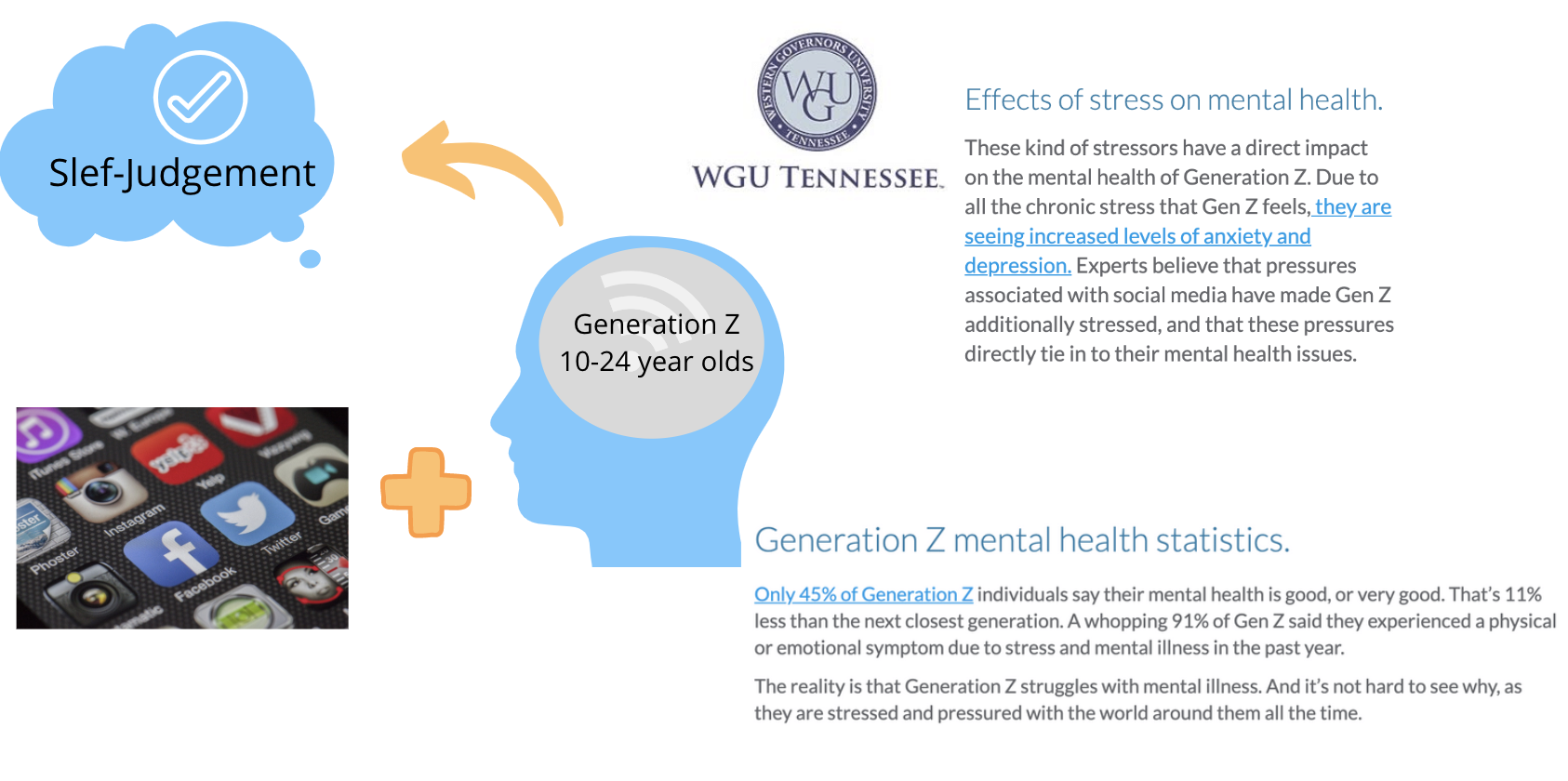
In this article, I will lay out a 3 step process to develop better self-awareness and self-appreciation. This process follows my personal journey and is designed to help people take a step back, gain perspective and analyze their own personality characteristics including your strengths and weaknesses in important life development areas. Being able to hone in on your strengths and being more mindful of your weaknesses can ultimately lead you to be more self appreciative, more aware of the self confirmed biases may you produce and how they may affect you.
Creating awareness and developing new perspectives and mindsets are imperative in developing psychological resilience which is of utmost importance in a digital age surrounded by self-judgment, self-comparison as well as external judgment and pressures.
Step #1: Go to (16personalities.com) and Take a Personality Test
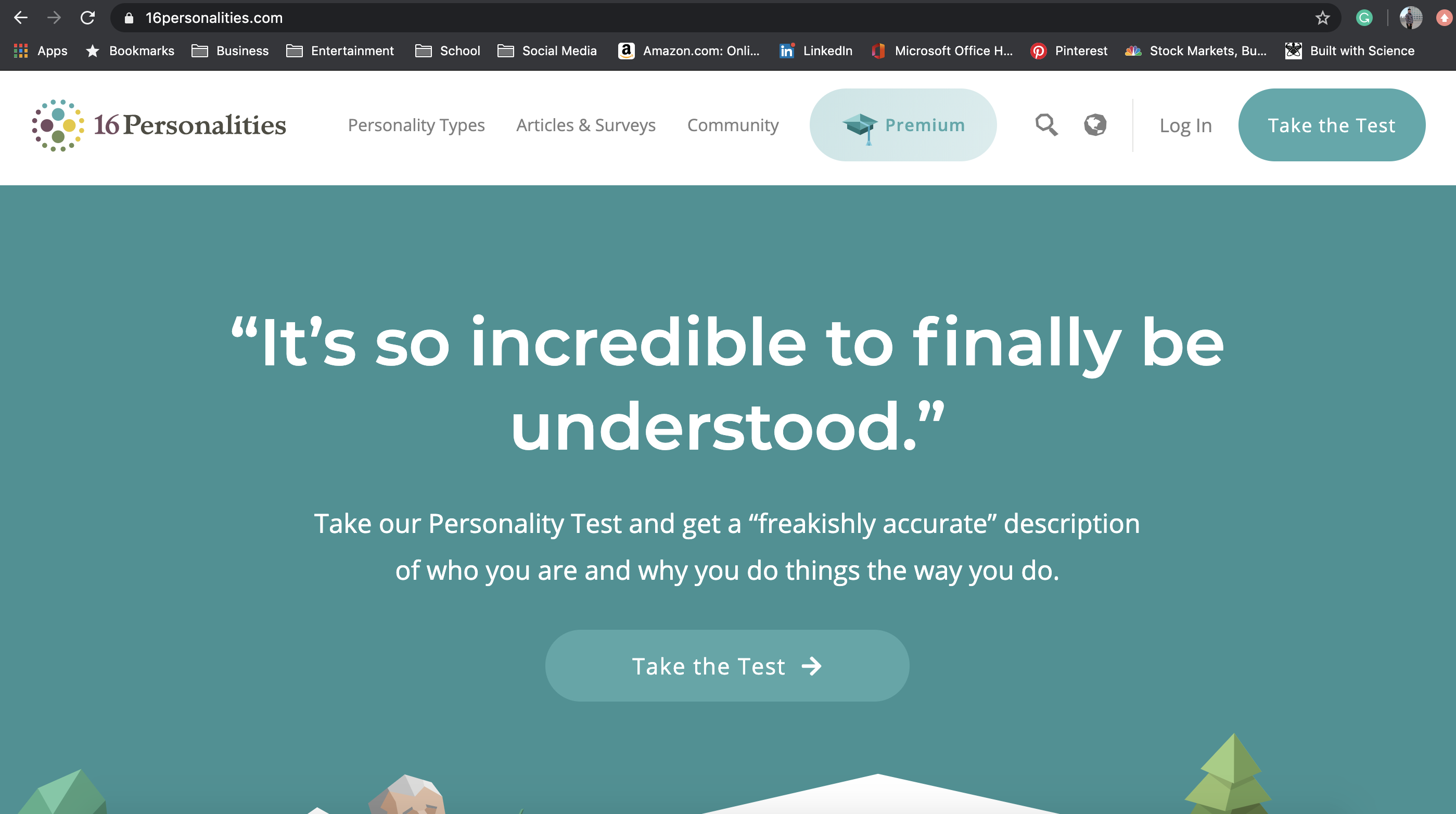
Step #1: Go to (16personalities.com) and Take a Personality Test
*** Please complete the test then return to the article
I can’t emphasize enough how much value I got from this personality test. I mean it really felt like I was reading about my whole life. Especially as a Protagonist sometimes not being able to effectively articulate my vision, messages or feelings with others.
Defined “As a charismatic and inspiring leader” (3). I found that my leadership is fueled by generosity and my ability to positively impact other people’s lives and inspire them to create their own definition of happiness. 16 Personalities helped me realize my purpose, potential, and passion that’s why I picked up blogging and podcasting to share ideas with others.
What values do you sit at the center of? Why are they important to you? How can you bring awareness to them in an exciting and fun way that keeps you busy? What digital channels are there for you to spread your message on? Which is the most effective and why? Which platforms have which audiences and etc.
These are just some of the questions I would ask people to try and inspire them to use their personal brand to create something of their own with patience, creativity, and generosity. These virtues are the foundation of our community as we make the most out of this digitally connected world by Riding the Wave of life together.
Step #2: Evaluate Your Results and Reflect on The Accuracy
***Please read the paragraph then return to the article
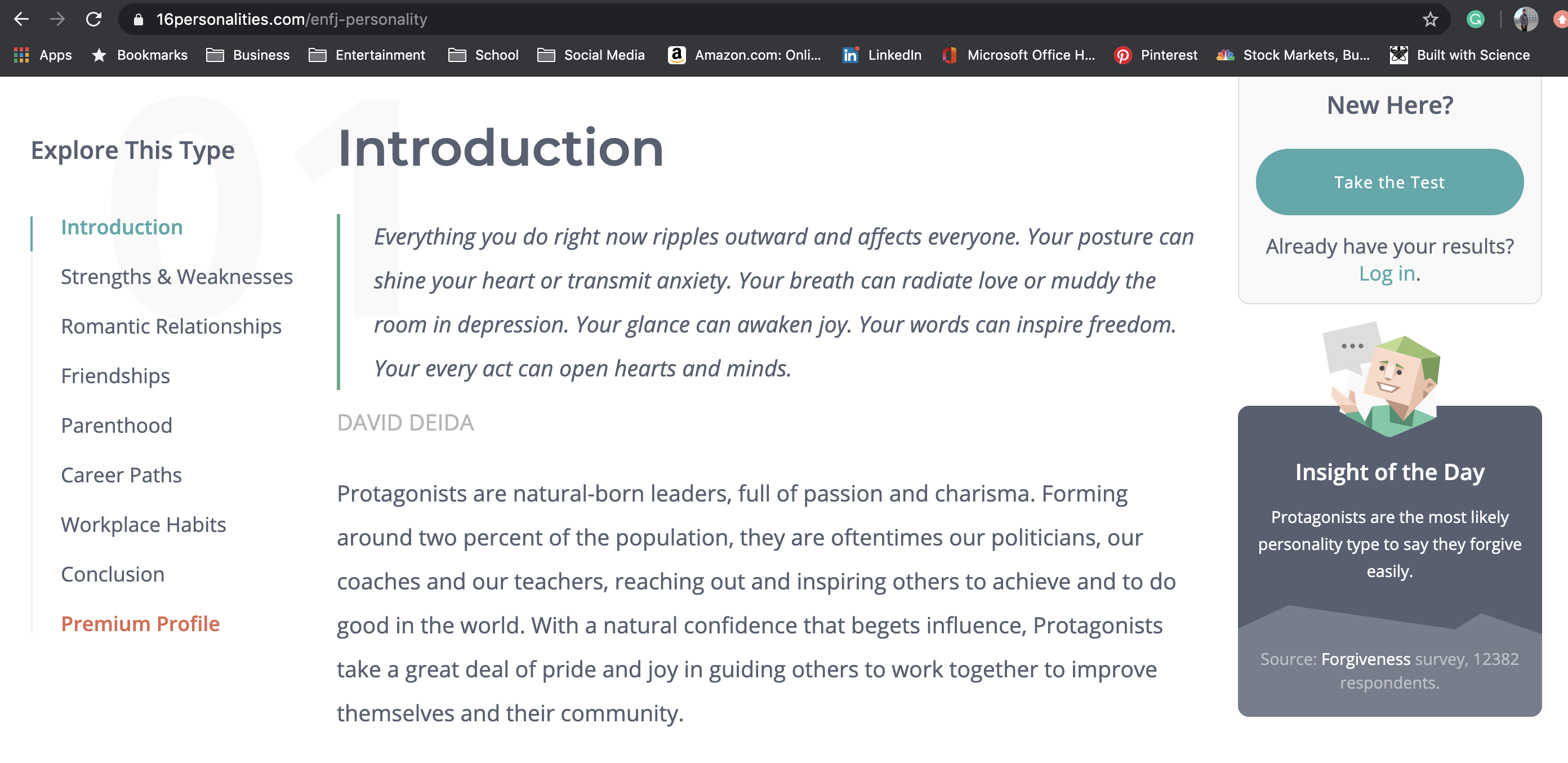
After you finish the personality test make sure to read the introduction into your personality type. This will provide you with a great starting point to relax, open up your mind, appreciate yourself and your unique tendencies. Begin with your strengths and weaknesses and think about them critically and reflect to take away something positive from each.
Next, do this for all of the sections provided by 16 personalities.com. Make sure you take the time to read each one and try to make meaningful associations (personal examples) with the insight provided and stay optimistic about all of your unique tendencies. Staying open-minded is key when developing a new appreciative self-promoting outlook on your life.
Also, be critical of your results, and look at other personality types again to make sure to check the accuracy of your personality type. Sometimes you may have different personality types based on the mood you had while taking the test. It’s actually a great idea to retake the personality test more than once just to get new insight on your second closest personality.
Step #3: Read the Conclusion and Ask Yourself How You Can Improve on Your Weaknesses
***Please read the paragraph first then go to your results.
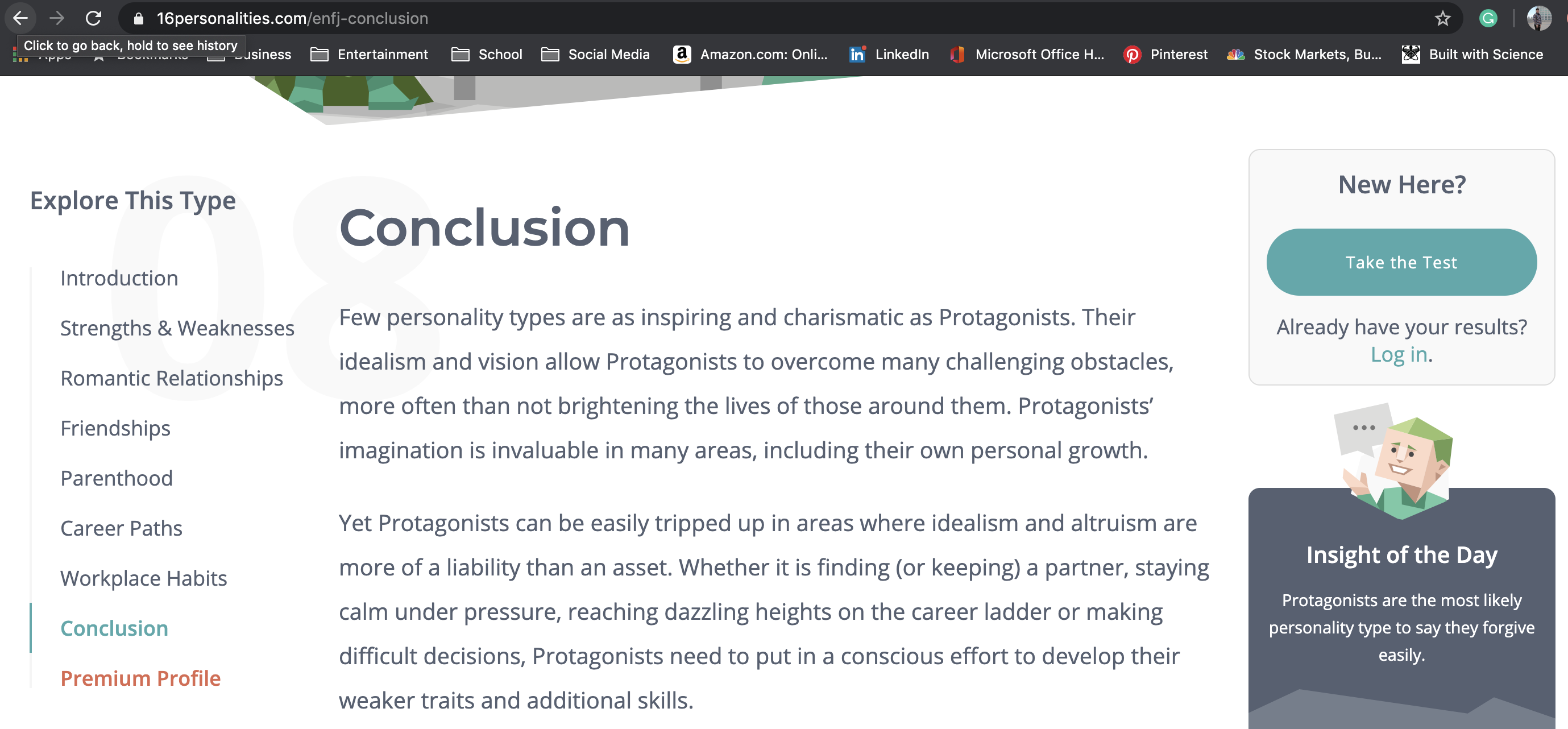
So finally, you have read everything I recommended and returned back to the article. You have evaluated your personality type and participated in a deep self-reflection and appreciation. Now hopefully you feel somewhat relieved to know more about yourself. Lastly, I would suggest you spend 15-30 minutes on the conclusion of your personality type.
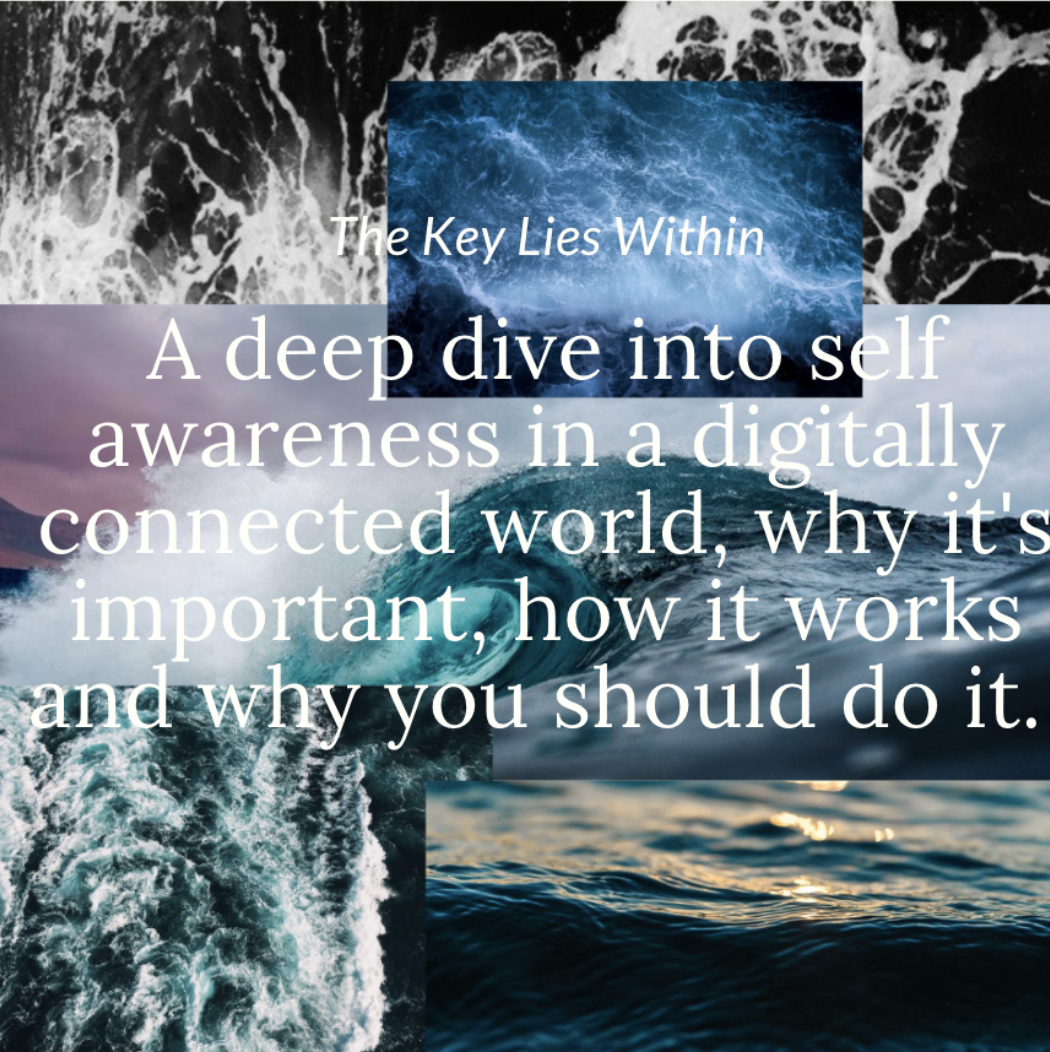
At the end of the conclusion, ask yourself how you can incorporate this into your life, ask your friends, family, and teachers how they would do it. You can always find what you’re looking for if your willing to put in the work to be better.
Thank you for reading.
By the way, I am in no way affiliated with 16 Personlaities.com this is solely my own article that I wanted to write for others.
If this article had a positive impact on you I challenge you to share it and mentor someone through the process as well. Often times people who think they don’t need it are the ones who need it the most. People who are unsure about their purpose in life. People who don’t love what they do every day. And lastly, those who fail to develop meaningful relationships with others. All of this can be addressed with self-awareness and self-appreciation through self-analysis.
I truly believe we live in such an amazing time with this digitally connected world. Why not share your ideas and not have to answer to a boss or be overworked and stressed out? Life is too precious to live like that and I hope that reading this article helps anyone and everyone who has struggled with staying true to themselves and being authentic because we’ve all had our challenges.
In-Text Citations:
- Confirmation Bias on Social Networks – Extensive Research by Marcos Fernades Ph.D
- ConfirmationBiasInSocialNetworks_preview.pdf
- According to Business Insider.
- “Generation Z: Latest Gen Z News, Research, Facts & Strategies.” Business Insider, Business Insider, www.businessinsider.com/generation-z?IR=T.
- According to David Deida from 16 personalities.com a contributor and expert on Protagonist personalities.
- Deida, David. “Protagonist Personality.” 16Personalities, www.16personalities.com/enfj-personality.
- Western Governors University. “Stress, Mental Health, and Generation Z.” Western Governors University, Western Governors University, 20 Jan. 2020, www.wgu.edu/blog/stress-mental-health-generation-z1906.html.

